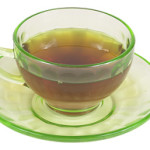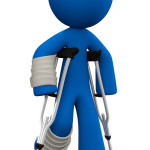 Yes, there are foods that help inflammation and can help you in overcoming irritable bowel syndrome or IBS. As you well know, IBS is a chronic gastrointestinal condition with abdominal pain and diarrhea or constipation. The inflammation may not be as obvious as it is in other GI disorders such as inflammatory bowel disease, ulcerative colitis or Crohn’s disease, but there is obviously significant dysfunction. The gut is not working correctly. If you have IBS, you may also suffer from migraine headaches, fibromyalgia, or temporomandibular joint disorder.
Yes, there are foods that help inflammation and can help you in overcoming irritable bowel syndrome or IBS. As you well know, IBS is a chronic gastrointestinal condition with abdominal pain and diarrhea or constipation. The inflammation may not be as obvious as it is in other GI disorders such as inflammatory bowel disease, ulcerative colitis or Crohn’s disease, but there is obviously significant dysfunction. The gut is not working correctly. If you have IBS, you may also suffer from migraine headaches, fibromyalgia, or temporomandibular joint disorder.
Here is a basic 1-2-3 punch to fight IBS and any associated inflammation and dysfunction:
1. Hidden food allergies, intolerance, sensitivities and addictions – Foods May Be the Answer to Your Question of What Causes Irritable Bowel
Is there some common thread or threads that can help you find answers? One of those common threads is a kind of delayed food allergy or sensitivity that plays a role in IBS and other conditions. Are some foods more likely culprits? Maybe.
What are the most common food allergies? In modern societies, foods like wheat, yeast, milk and other dairy products, corn, eggs, beef, and white potato may be offending foods. Sometimes chicken, fish, or shellfish can be an issue.
The bottom line is that you need to test and find the unique set of offending foods that set off your symptoms. Once you find them, you will find that total elimination from the diet for at least 3 months is the best way to decide if they were contributing to the problem.
Many people with these types of food allergies have IgG antibodies to the various foods that are problematic. They may or may not pick up the specific mechanisms in your body that are set off by your problem foods. Alternatively, you can get blood tests for food intolerances or for IgG food allergies, even without your doctor’s order.
Research suggests that these types of IgG or food intolerance blood tests are a useful starting place (Guo et al J Int Med Res 2012; 40(1):204-10; Aydinlar et al 2013 Headache 53(3):514-25). The real test for you is to eliminate the foods for several weeks or longer – and it is usually a lot more than one food – for enough time to give your body a chance to heal. This is the ultimate drug-free solution. For people with even more complex health problems that include IBS, fibromyalgia, or other tough chronic conditions, you may want to take a look at more comprehensive specialized testing from labs that know about what to test for body biochemistry problems.
2. Anti-inflammatory foods and supplements – omega 3 fatty acids, prebiotics, and probiotics
Are there foods that help inflammation that might accelerate the recovery?
If you are not having adverse reactions to foods like fatty fish, eating wild salmon, sardines, mackerel or other fatty fish may help with their anti-inflammatory omega-3 fatty acids. Or, take fish oil capsules if you don’t like to eat fish.
You may not be able to eat yogurt if you are milk-sensitive, but perhaps you can take good bacteria — that is, probiotic supplements. In children, one study found that an gut imbalance in intestinal microflora was associated with regular IgE types of allergies. In short, the researchers found too many lactobacilli/enterococci and not enough bifidobacteria (Gut 2002; 51(1):51-5). One lesson from this study is that “probiotics” is a big general label for good gut bacteria. But, as with many other things in the body, you need the right balance. That would be where a skilled physician with special expertise in functional medicine might be able to help you a lot. They can order specialized tests of your stools and then select from a wide range of possible products to choose the right probiotic bacteria for your situation.
Prebiotics are indigestible fiber-containing foods like oligofructose or inulin. In foods, you can get this type of fiber from apple skin, bananas, beans, onions or garlic, chicory root and more. Of course, just because a food potentially has food fiber in it does not mean that it is going to be something you tolerate…or that you can get enough of. For that reason, you want to make sure you include tolerated fiber sources as a general part of your healthy anti inflammatory diet plan. But you may even need to consider supplements of prebiotic fiber as well.
3. Melatonin and other regulatory supplements
Wondering what else to take for IBS? Taking any hormone should be a carefully considered decision between you and your own doctor, including melatonin. Many over the counter supplements give you a lot more per dose than the body would naturally make, even if everything were working well. However, recent research suggests that taking melatonin in 3 mg bedtime doses may help lessen abdominal pain in IBS (Siah et al 2014; World J Gatroenterol 20(10):2492-8). So, with consultation with your doctor this may be another option. A good bonus is that this may help you sleep better if you are having trouble with insomnia.
The main point to remember is that you can do something to help yourself with IBS and other symptoms. Get started today!






Leave a Reply
You must be logged in to post a comment.